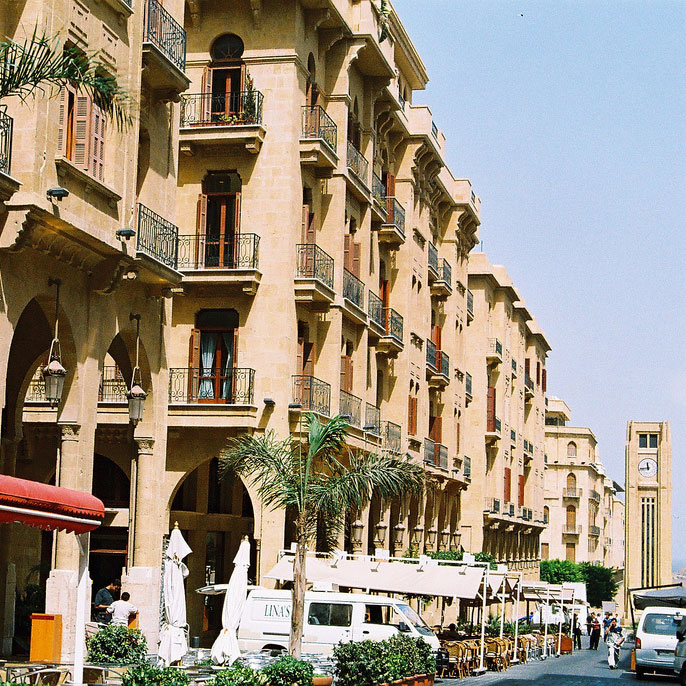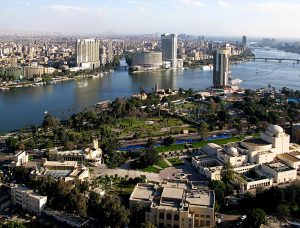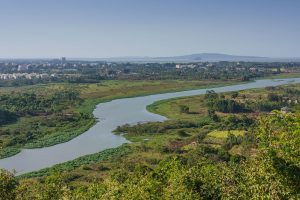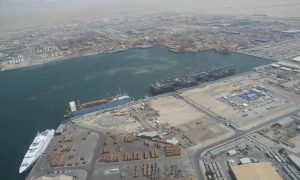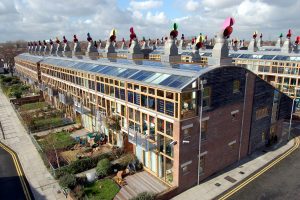By achieving the same economic value through the reduction in waste materials, eco-cities are at the forefront of improving economic resilience and quality of life for citizens.
Built on the structural foundation of promoting ecological sustainability, smart and eco-cities lead to the dynamic growth of cities that face immense ecological challenges. Eco-cities are considered to be a highly lucrative investment for making cities full-proof from impending disasters in the unpredictable global market. In order to cut short, the use of excessive land and acquire a useful medium for insulation from natural sources, eco-cities utilize vertical landscapes, green roofs and bridge links in sketching the architectural landscape of residential and commercial properties.
Popular for its abundant natural resources, the Middle East and North Africa region faces potential environmental threats in addition to the political conflicts prevailing in the region. Policymakers are rigorously looking for creative solutions to tackle the current environmental dilemma through a collaborative approach. In a particular context, Sudan is currently facing a plethora of challenges not only pertaining to warfare and political conflict but also concerning important aspects of land degradation and desertification. Egypt faces burgeoning challenges of air pollution, carbon emissions, energy consumption as well as the preservation of coastal areas.
According to the United Nations 2017 estimate, one-third of the population of Sudan is aggregated in urban cities. With drought and scarce rainfall in the region along with a growing population, Sudan is currently facing diminishing agricultural belts and ramping up of air, water, and solid waste pollution. According to the Sudanese Health Ministry, pollution was the main cause of infectious diarrhea in about 16,000 cases. Omdurman landfill is a dumping ground for all solid waste. The pollution of drinking water, food, and air in Sudan is due to a defect in waste collection and disposal mechanisms.
At the Seminal International Conference in 2016, a decision was made to carry out a collaborative approach within the states of the MENA region in order to best address the challenges at hand. To tackle the looming challenge of environmental hazards and potential threats prevailing in the MEA region, eco-cities were brought into existence. Let’s explore some of the eco-friendly steps taken by some states around the MENA region.
Masdar City has evolved as the green print of eco-cities across the Middle East. Located in the heart of Abu Dhabi, the city has developed an integrated solution for restoring energy and reducing waste materials, utilizing modern and innovative approaches of research, technology and architectural models that help come up with cutting edge solutions in terms of saving energy and promoting sustainability across the region. Egypt dominates the energy sector in the MENA region, ranging from installation of solar power capacity to utilization of fossil fuels for Egyptian Renewable Energy. Egypt intends to increase the supply of electricity generated from renewable sources to 20% by 2022. Egypt also dominates the wind energy sector across the Middle East and North Africa.
In contrast to Egypt, Dubai has demonstrated efficient use of solar energy in Jebel Ali free zone buildings. Considered to be the largest rooftop project in the MENA region, with almost 90,000 solar panels installed on top of buildings, parking lots and parks. Solar panels help cut costs and promote sustainable utilization of renewable resources for cities. The city of Dubai intends to acquire improved environmental standards by launching its first solar-powered hotel in Dubai Sustainable City. By using sustainable methods in dealing with the rapidly growing environmental challenges, Dubai is set to become a global example for eco-friendly and smart cities in the MENA region.
On the other hand, Gaza has started a no waste campaign called Antika. This aim is achieved through efficient recycling maneuvers that transform useless waste material into reusable entities. The government of Gaza is aware of the dire need for sustainable and reusable materials. To address the increasing demands of the growing population, it intends to promote the effective utilization of waste materials. Syria has also pioneered the innovative technique of coming up with a solar-powered washing machine. The country had been facing undesirable power breakdowns and water deficits for quite some time. To cope up with this challenge, an investment of $300,000 was made in launching the product locally as well as globally. Morocco has also acknowledged the benefits of eco-cities in terms of human and financial capital. For this purpose, a fund of $3.9 billion was raised with key contributions from a German investment bank and the World Bank, to support the launch of the world’s largest solar power plant in Morocco.
MENA countries need to confront these environmental problems and seek further opportunities for adopting an integrated, collaborated and coordinated approach among policymakers in order to work towards the development of eco-cities in the region. Some of the ideal requirements for developing an Eco-city across the MENA region comprise of the following:
- Functions on self-sustainable resources that are available locally.
- Promotes 100 percent Carbon-free and Renewable Energy resources.
- Has an eco-friendly transportation layout starting from cycling, walking to public transportation?
- Achieving a zero-waste system utilizing renewable resources of wind, water, and solar energy.
- Preservation of urban areas exposed to environmental damage.
- It provides affordable housing opportunities to the urban population.
- Promotes the cultivation of local produce.
- Decreasing material consumption and developing awareness regarding ways for renewable energy resource allocation.



